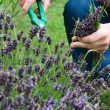In an increasingly stressful and fast-paced world, finding effective ways to manage anxiety is paramount to maintaining our mental well-being. While there are numerous methods available, one ancient practice has stood the test of time: aromatherapy. By harnessing the power of scent, aromatherapy offers a natural and holistic approach to alleviating anxiety and promoting relaxation. In this article, we will explore the fascinating world of aromatherapy and delve into techniques that can help reduce anxiety and enhance overall well-being.
- Understanding Aromatherapy:
Aromatherapy is a therapeutic practice that utilizes the aromatic properties of essential oils derived from plants. These potent oils capture the essence of various botanicals and are known for their diverse therapeutic effects on the mind and body. When inhaled or applied topically, essential oils interact with our olfactory system, triggering emotional and physiological responses.
- Calming Essential Oils:
Certain essential oils possess soothing properties that can help alleviate anxiety and induce relaxation. Lavender, widely regarded as the queen of essential oils, is known for its calming and sedative effects. Its gentle scent can promote relaxation and improve sleep quality. Another popular choice is chamomile, which has been used for centuries to reduce stress and soothe the mind. Other anxiety-reducing essential oils include bergamot, ylang-ylang, and frankincense. Experimenting with different oils can help identify the scents that resonate best with individual preferences.
- Methods of Application:
Aromatherapy can be experienced through various methods of application, each offering a unique sensory experience. Diffusers are a popular choice, dispersing essential oils into the air, allowing their scent to permeate the surroundings. Inhalation, achieved by placing a few drops of oil on a tissue or using a personal inhaler, provides a direct route for the scent to reach the olfactory system. For topical application, essential oils can be diluted in a carrier oil and massaged onto the skin, providing both scent and absorption into the body.
- Creating a Tranquil Atmosphere:
To fully embrace the benefits of aromatherapy, it is essential to create a tranquil atmosphere that encourages relaxation. Dim lighting, soft music, and a clutter-free space can enhance the overall experience. Diffusing essential oils in the chosen room can instantly transform it into a calming sanctuary. Experimenting with different oil combinations can add depth to the ambiance and provide a personalized touch.
- Practicing Self-Care:
Incorporating aromatherapy into a self-care routine can have long-lasting benefits for anxiety reduction. Taking regular moments throughout the day to pause, breathe in soothing scents, and let go of tension can contribute to overall well-being. Whether it’s through a relaxing bath with a few drops of essential oil, a meditation session accompanied by a calming scent, or simply inhaling the aroma of an essential oil during a deep breath, these practices can help promote a sense of calm and balance.
Conclusion:
In a world where stress and anxiety are prevalent, seeking natural and effective remedies is crucial for our mental and emotional well-being. Aromatherapy, with its rich history and proven therapeutic benefits, provides a fragrant pathway to inner calm. By incorporating the power of scent into our lives, we can harness the therapeutic potential of essential oils and find solace amidst the chaos. So, let the captivating scents of aromatherapy guide you on a journey toward anxiety reduction and a greater sense of tranquility.












